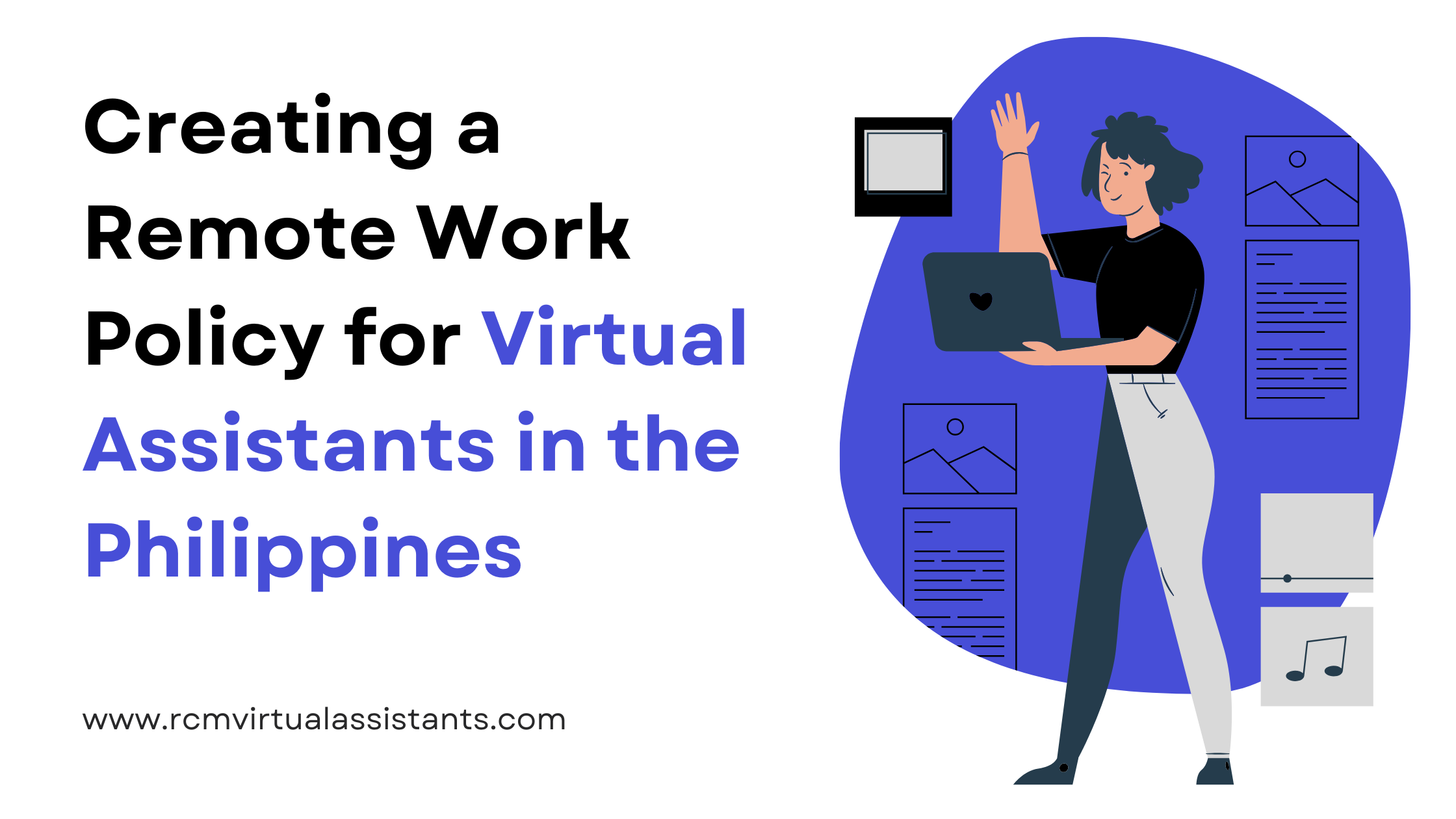Phone:
(701)814-6992
Physical address:
6296 Donnelly Plaza
Ratkeville, Bahamas.

In recent years, remote work has become more than just a trend; it’s a way of life for many. As someone who’s dabbled in various aspects of remote work—whether managing a team of virtual assistants or being a virtual assistant myself—I can tell you firsthand that a solid remote work policy is crucial. It not only defines the expectations for employees but also establishes a framework for communication and productivity. So, let’s dive into how you can create an effective remote work policy tailored for virtual assistants in the Philippines.
The Philippines has become a hotbed for virtual assistants, and it’s no wonder why. The country boasts a large pool of English-speaking talent, often with backgrounds in customer service, marketing, and administration. If you’ve ever thought about hiring a virtual assistant from the Philippines, you’re not alone. Many entrepreneurs and businesses have taken the plunge, realizing the benefits of outsourcing tasks that can be done remotely.
But here’s the kicker: without a clear policy, it can feel like herding cats. So, how do you keep your virtual assistants productive and engaged while they’re working from their home office or perhaps a cozy café? It all starts with a well-thought-out remote work policy.
Having a remote work policy isn’t just about telling your team what to do. It’s about creating an environment where everyone understands their roles and responsibilities. Picture this: You’re working from home, your virtual assistant is working from a beach in Cebu, and the last thing you want is to feel like you’re both on different planets. A remote work policy can help bridge that gap, keeping everyone aligned and accountable.
When crafting your remote work policy, start by clearly defining roles and responsibilities. What tasks are your virtual assistants responsible for? What outcomes do you expect?
In my experience, I’ve found that having a clear task list can eliminate confusion. For instance, when I was managing a team, I used project management tools like Trello to assign tasks and set deadlines. This way, everyone knew who was doing what and when it was due.
Communication is the backbone of any remote team. Without face-to-face interactions, it’s easy for messages to get lost or misunderstood. So, what’s the best way to stay connected?
Tools to Consider:
In your policy, specify how often you expect check-ins and what platforms to use. Maybe you prefer weekly video calls on Monday mornings—who doesn’t love a little Monday motivation? Establishing these protocols will ensure everyone is on the same page and feels supported.
While one of the perks of remote work is flexibility, it’s essential to set core working hours where everyone is expected to be available. This might differ based on the time zones you’re operating in, especially if you’re working with virtual assistants in the Philippines from a different part of the world.
Ask yourself: What hours work best for your team? For example, if you’re in the U.S. and your virtual assistants are in the Philippines, a morning meeting for you may be afternoon for them.
It’s all about results, right? Setting performance metrics allows you to measure productivity and output. Consider using tools like Semrush for tracking tasks related to content or marketing efforts. You might find it useful to set KPIs (Key Performance Indicators) based on project completion rates, response times, or customer satisfaction scores.
Just because your team is remote doesn’t mean you can’t build a sense of community. Incorporate team-building activities into your policy, like virtual coffee breaks or fun contests. I’ve had success in the past with themed video calls—imagine a “hat day” where everyone wears their favorite hat. It adds a touch of fun and breaks the monotony of work.
When virtual assistants access sensitive company data, it’s crucial to establish security protocols. Make sure your policy addresses data protection, confidentiality, and the use of secure networks. This is particularly important in an age where data breaches seem to be a daily headline.
Time management can be tricky when working from home. Encourage your virtual assistants to set boundaries between work and personal life. Suggest tools like Toggl for time tracking to help them manage their workload efficiently. You might even recommend the Pomodoro Technique, which encourages working in focused bursts followed by short breaks. It’s a game-changer!
Here’s a simple framework to help you get started:
Creating a remote work policy tailored for virtual assistants in the Philippines is no small feat, but it’s definitely worth the effort. A well-structured policy fosters communication, enhances productivity and builds a positive remote work culture. By defining roles, setting expectations, and maintaining open lines of communication, you can create a thriving remote team that feels connected, even from miles away.
So, have you started drafting your remote work policy yet? What elements do you think would be most beneficial for your team? Feel free to share your thoughts or experiences—let’s keep the conversation going!